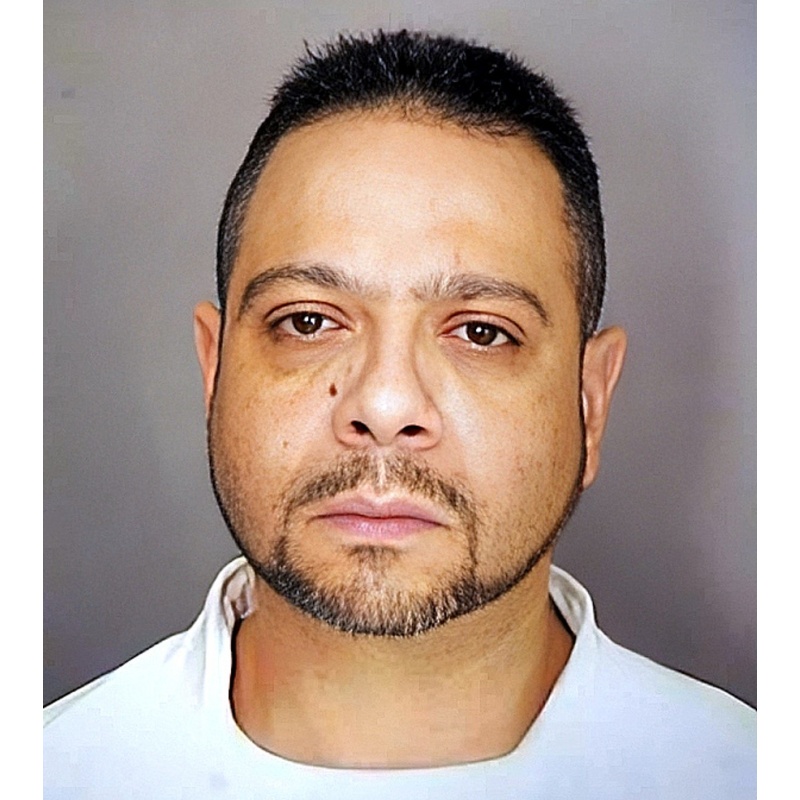FRANCISCO A. ACEVEDO | “The Yonkers Phantom” | Serial Killer Responsible For The Murders Of Three Women In New York From 1989 To 1996 | Avoided Detection For 20 Years | ALS
LongfellowSerenade 28
Francisco Acevedo, an American serial killer, is responsible for the murders of three women in New York from 1989 to 1996. His early life was characterized by substance misuse and a dysfunctional familial background, which contributed to his criminal activity. Acevedo's criminal history began in 1986, when he was charged with serious sexual assault and sentenced to ten years in jail. Following his release in 1988, he continued to engage in aggressive behavior and was charged with domestic violence against his wife several times.
The most notable feature of Acevedo's criminal background is the string of killings for which he was eventually convicted. Acevedo was caught for drunk driving for the fourth time in January 2009, and as part of his parole hearing, he willingly supplied a DNA sample, which later matched DNA evidence acquired from the murder victims. Despite his defense approach, Acevedo was found guilty of all charges after only one day of jury deliberation. In December 2012, he was sentenced to 75 years to life in prison.
$60.00
- Postage
-
Standard Shipping
$0.00 to United States
Get Additional Rates
- Select Country
- Zip/Post Code
- Quantity
Description
Francisco Acevedo. Autographed Letter, Signed. Handwritten, Commercial #10 (4.125 × 9.5 envelope). Stormville, NY. December 31, 2024. Content unknown. SEALED.
Francisco Acevedo: Overview
Classification: Serial killer
Characteristics: Convicted rapist - The killings were linked to Acevedo by DNA he submitted after arrested on a drunken driving charge
Number of victims: 3
Date of murders: 1989 / 1991 / 1996
Date of arrest: April 2010
Date of birth: 1968
Victims profile: Maria Ramos, 26 / Tawana Hodges, 28 / Kimberly Moore, 30
Method of murder: Strangulation
Location: Yonkers, Westchester County, New York, USA
Status: Sentenced to 75 years to life in prison on January 17, 2012
Francisco Acevedo, born on September 2, 1968, in Meriden, Connecticut, is an American serial killer known for the murders of three women in New York between 1989 and 1996. His criminal activities were characterized by a pattern of violence against vulnerable individuals, specifically sex workers. Acevedo’s early life was marked by substance abuse and a troubled family background, which contributed to his eventual criminal behavior.
Early Life and Background
Acevedo was raised in a challenging environment; his parents divorced when he was 14 years old. Following this event, he moved in with his father and began abusing alcohol and drugs at a young age. By the time he was 12, he had already started using marijuana and cocaine. His academic journey was cut short when he dropped out of high school during his freshman year. Subsequently, he held various low-wage jobs including laborer, cook, dishwasher, and baker.
In the 1990s, Acevedo resided in Mount Vernon, New York. He met his future wife while working at New Way Kitchen and together they had two sons. However, his personal life was marred by incidents of domestic violence that led to multiple arrests.
Criminal History
Acevedo’s criminal history began with a serious sexual assault charge in July 1986 when he picked up a woman in his truck under false pretenses. He bound her hands and sexually assaulted her but she managed to escape after he fell asleep. This incident resulted in a ten-year prison sentence; however, he was released after serving only two years.
Following his release from prison in June 1988, Acevedo continued to engage in violent behavior. He faced charges related to domestic violence against his wife multiple times throughout the late 1990s.
Murders and Arrest
The most significant aspect of Acevedo’s criminal history is the series of murders for which he was ultimately convicted. The victims included:
Maria Ramos, murdered on February 5, 1989
Tawanda Hodges, murdered on March 28, 1991
Kimberly Moore, murdered on May 24, 1996
Each victim was found naked and beaten with their bodies posed post-mortem—a signature characteristic that linked these crimes together.
In January 2009, Acevedo was arrested for drunk driving for the fourth time. As part of the parole process for this offense, he voluntarily provided a DNA sample which later matched DNA evidence collected from the murder victims. This breakthrough led to his arrest as authorities had previously lacked a suspect whose DNA could be connected to these cold cases.
During the trial that followed his arrest for the murders, Acevedo maintained that while he had sexual encounters with the victims – who were known prostitutes – he denied any involvement in their deaths. Despite this defense strategy, he was found guilty on all counts after just one day of jury deliberation.
Sentencing
In December 2012, Francisco Acevedo received a sentence totaling 75 years to life imprisonment, reflecting three consecutive sentences of 25 years to life for each murder conviction. He is currently incarcerated at Green Haven Correctional Facility.
Conclusion
Francisco A. Acevedo’s case highlights issues surrounding serial violence against marginalized individuals and raises questions about societal responses to domestic abuse and substance addiction that can lead individuals down paths of severe criminality.
VIDEO: Serial killer | Caught by DNA | 20 years later | yonkers murders | Francisco acevedo | real crimes | https://youtu.be/6zy_lD3oxLU
Archiving Protocol:
• Handled with White Gloves ab initio
• Photo Pages/Sheet Protectors: Heavyweight Clear Sheet Protectors, Acid Free & Archival Safe, 8.5 × 11, Top Load
• White Backing Board – Acid Free
Shipping/Packaging: Rigid Mailer 9.5 × 12.5. White, self-seal, stay-flat, Kraft cardboard, no bend. Each rigid mailer is made of heavy cardboard, which has strong resistance to bending and tearing. Thicker than the USPS mailers. Shipping cost never more than it absolutely has to be to get it from me to you.
Payments & Returns
- Payment Methods
- PayPal, Money Order
Postage & Shipping
- Item Location
- 49858, Michigan, United States
- Ships To
- Worldwide
- Pick-ups
- No pick-ups
- Shipping Instructions
- Shipping costs to international destinations will be applied to this auction. Please contact us if you have any questions about shipping to your location.
- Returns Accepted
- No

-800x800.jpg)





-500x500.jpg)


-500x500.jpg)